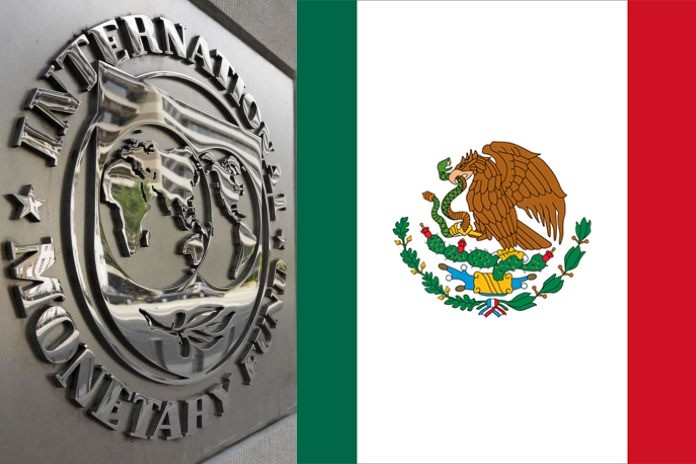WASHINGTON, USA – The executive board of the International Monetary Fund (IMF) concluded the Article IV consultation with Mexico.
The Mexican economy is rebounding from its deepest recession in decades, driven by strong U.S. growth and the pandemic-related re-opening of sectors. After shrinking 8.3 percent in 2020, real GDP is forecast to grow by 6.2 percent in 2021 and 4 percent in 2022.
Nonetheless, Mexico is bearing a very heavy humanitarian, social, and economic cost from COVID-19. There have been over half a million excess deaths, under-employment remains very high, poverty that was high before the pandemic has increased further, and the young have experienced sizable learning losses with potentially harmful long-term consequences.
The government has emphasized a conservative fiscal stance with a focus on containing debt. The overall deficit target is 4.2 percent of GDP in 2021, with increased allocations for health spending and public investment. Efforts to combat tax evasion have contributed to generally better-than-expected revenues. The gross debt of the public sector (by staff’s definition) is estimated at about 60 percent of GDP. With inflation well above its target, the central bank has raised the policy rate to 4.75 percent. The current account, which jumped to a record surplus of 2.4 percent of GDP in 2020, has moderated and is nearly balanced. The banking sector has strong capital positions and nonperforming loans are relatively low at 2.4 percent of total loans (as of May 2021). International reserves remain at a comfortable level, boosted by the new general allocation of SDRs.
Executive board assessment
Executive directors broadly agreed with the thrust of the staff appraisal. They commended the authorities for successfully maintaining economic stability through a challenging period, underpinned by very strong macroeconomic policies and institutional policy frameworks. The economy continues to rebound, despite further COVID 19 waves and supply chain constraints. However, given economic scarring risks and Mexico’s low long-run growth performance, Directors underscored the need to safeguard the recovery and promote stronger, more inclusive, and greener growth.
Directors generally saw merit in additional well-targeted fiscal support using available fiscal space for health and education, social safety nets, and quality public investment. In this context, a few Directors considered the authorities’ conservative approach appropriate to contain public debt. Directors stressed the importance of enhancing spending efficiency and containing the projected rise in pension spending. They also urged reform of Pemex’s business strategy and governance.
Directors welcomed the authorities’ recent successes in improving tax administration. A credible medium-term tax reform, to be implemented as the economy strengthens, would help finance needed social and public investment spending and put the public debt to GDP ratio on a firm downward trajectory.
Directors noted that recent inflationary pressures, while mostly temporary, pose a difficult balancing act amid still sizable slack. They recommended a gradual, data-driven pace of policy normalization that carefully balances support for the recovery while keeping medium-term inflation expectations well anchored. Continued efforts to enhance the central bank’s communications would be helpful in this regard, while a strategic review of the monetary policy framework could be conducted at the appropriate time. The flexible exchange rate should continue to serve as an external shock absorber.
Directors recognized Mexico’s early adoption of climate change mitigation policies and targets. They encouraged implementing a comprehensive strategy, which could consider the scope and level of carbon pricing as part of broader mitigation and adaptation actions and redistribution policies. They emphasized that leveraging Mexico’s large and diverse renewable resource base can foster a cheaper, more sustainable, and competitive energy sector.
Directors encouraged the authorities to tackle impediments to productivity growth through well prioritized structural reforms. They highlighted the need to promote labor market formality, narrow gender gaps, foster financial inclusion, and improve governance. Directors also recommended calibrating minimum wage increases to productivity growth. Advancing AML/CFT reforms and addressing outstanding recommendations from the 2016 FSAP will be important.
It is expected that the next Article IV consultation with Mexico will be held on the standard 12-month cycle.





